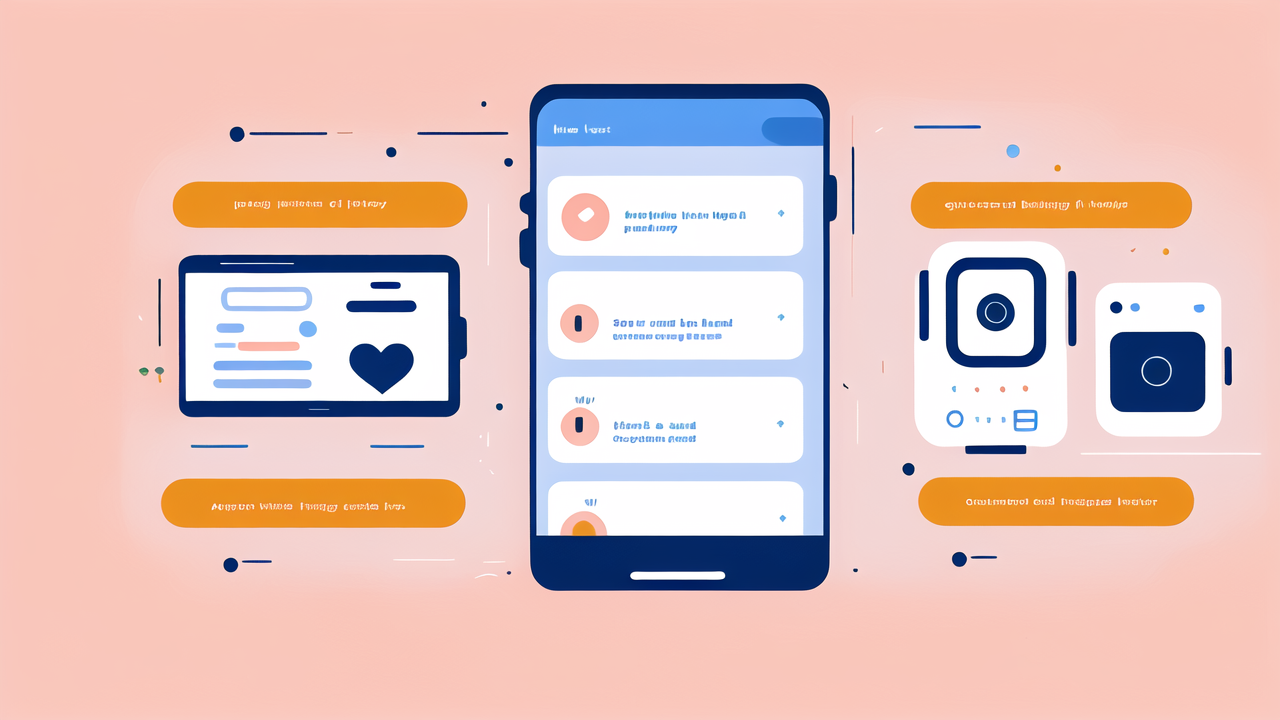Understanding the Basics of Smart Bands
What Are Smart Bands?
Smart bands are wearable devices that track various health metrics. They are compact, lightweight, and worn on the wrist. These devices monitor activities like steps, sleep, and heart rate. Smart bands sync with smartphones to provide detailed health data. They offer a convenient way to keep tabs on your fitness goals. Many models also display notifications from your phone. Smart bands are popular among health-conscious individuals. They provide an easy way to stay on top of your wellness journey.

The Evolution of Smart Band Technology in the United States
Smart band tech has come a long way in the US. Early models only counted steps and calories. Now, they offer a wide range of features. Heart rate monitoring became standard in the mid-2010s. Sleep tracking followed soon after. Recent advancements include blood oxygen monitoring and stress tracking. Some bands now offer ECG capabilities. The accuracy of these devices has improved greatly over time. US companies like Fitbit and Apple have been at the forefront of this evolution. They continue to push the boundaries of what smart bands can do.
Key Features of High-Quality Smart Bands
Top-notch smart bands share several key features. Accurate sensors are a must for reliable data. Long battery life ensures uninterrupted tracking. Water resistance allows for use during swimming or showering. A clear, easy-to-read display is crucial for quick information access. Comfortable design is important for 24/7 wear. Integration with health apps enhances data analysis. Some advanced features include:
- GPS tracking
- Contactless payments
- Music control
- Voice assistant support
High-quality bands also offer customizable watch faces and interchangeable straps.
Best Smart Bands for Personal Health and Wellness
Top Picks for Smart Bands: A Comprehensive Review
- Fitbit Charge 5: Best overall smart band
- Sleek design with a color touchscreen
- Built-in GPS and ECG app
- Stress management features
- Apple Watch Series 7: Premium choice for iPhone users
- Large, always-on Retina display
- Advanced health features including blood oxygen monitoring
- Seamless integration with Apple ecosystem
- Garmin Vivosmart 4: Best for fitness enthusiasts
- Slim design with pulse ox sensor
- Body battery energy monitoring
- Advanced sleep tracking
- Samsung Galaxy Fit2: Budget-friendly option
- Long battery life (up to 15 days)
- Auto workout tracking
- Water-resistant design
- Xiaomi Mi Band 6: Best value for money
- Large AMOLED display
- 30 fitness modes
- SpO2 tracking
These smart bands offer a range of features to suit different needs and budgets.

How Smart Bands Facilitate Health Tracking
Smart bands make health tracking effortless and consistent. They automatically record daily activities. This includes steps taken, calories burned, and distance traveled. Many track heart rate 24/7, providing insights into overall fitness. Sleep tracking helps users understand their sleep patterns. Some bands monitor stress levels and suggest relaxation exercises. Advanced models can detect irregular heartbeats. They may also measure blood oxygen levels. All this data is synced to a smartphone app. Users can view trends and set goals. Some bands offer guided workouts and breathing exercises. They act as personal health coaches on your wrist.
Integration with Popular Health and Fitness Apps
Smart bands work well with many health and fitness apps. This integration enhances the user experience. Popular apps include:
- MyFitnessPal: For diet and nutrition tracking
- Strava: For running and cycling metrics
- Apple Health: For iPhone users to centralize health data
- Google Fit: Android's health and activity tracking platform
- Fitbit App: For Fitbit users to view detailed health stats
These apps sync data from smart bands automatically. They provide in-depth analysis and actionable insights. Users can set goals and track progress over time. Some apps offer social features for motivation. Integration allows for a more holistic view of one's health and fitness journey.
Choosing the Right Smart Band: Considerations and Tips
Important Factors to Look for When Purchasing a Smart Band
When choosing a smart band, consider these key factors:

- Compatibility: Ensure it works with your smartphone's OS.
- Battery life: Longer is better for uninterrupted tracking.
- Water resistance: Important for swimmers or shower wear.
- Display: Check for readability in various lighting conditions.
- Comfort: The band should be comfortable for all-day wear.
- Sensors: Look for sensors that match your health tracking needs.
- App quality: A user-friendly app enhances the experience.
- Price: Set a budget that aligns with your needs.
Also, consider the brand's reputation and customer support. Read user reviews for real-world insights.
Expert Advice on Selecting Your Smart Band
Experts recommend focusing on your specific needs when choosing a smart band. If you're a serious athlete, prioritize advanced fitness features. For general health tracking, a simpler model may suffice. Consider your daily routine and choose a band that fits seamlessly. Battery life is crucial if you dislike frequent charging. For swimmers, water resistance is a must. If you have specific health concerns, look for relevant tracking features. Don't be swayed by unnecessary features you won't use. Try on different models to ensure comfort. Remember, the best smart band is one you'll wear consistently.
The Future of Smart Bands in the Health Sector
The future of smart bands in health looks promising. We can expect more advanced sensors and features. Non-invasive blood glucose monitoring is a potential game-changer. Improved stress detection and management tools are likely. AI integration may offer more personalized health insights. Smart bands may play a bigger role in telemedicine. They could provide real-time data to healthcare providers. Enhanced sleep tracking may help diagnose sleep disorders. We might see more focus on mental health features. As technology advances, smart bands will become even more accurate and reliable. They may become essential tools in preventive healthcare. The line between smart bands and medical devices may blur in the coming years.




Leave a comment
This site is protected by hCaptcha and the hCaptcha Privacy Policy and Terms of Service apply.